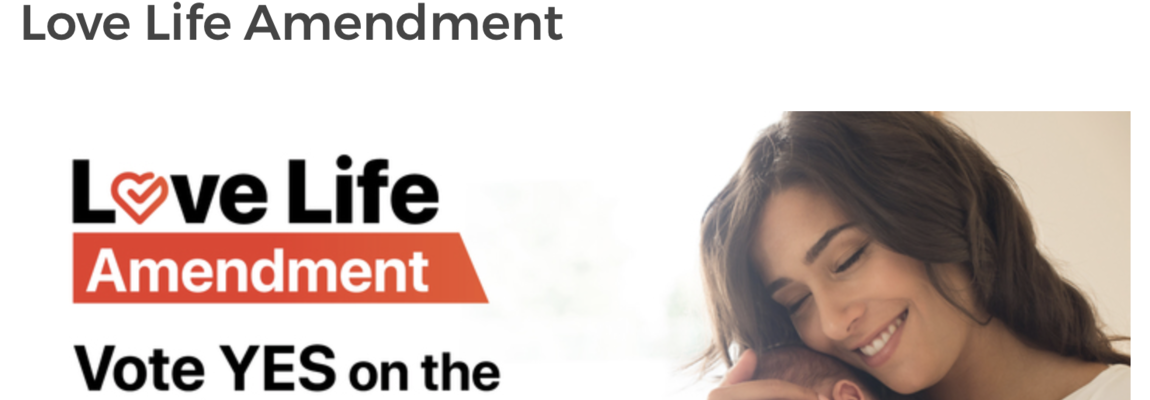
A platform that encourages healthy conversation, spiritual support, growth and fellowship

NOLACatholic Parenting Podcast
A natural progression of our weekly column in the Clarion Herald and blog

The best in Catholic news and inspiration - wherever you are!
The Catholic case for voting ‘yes’ on the Love Life Amendment
-

By Sophie Trist
Contributing writer
When Louisianians go to the polls on Nov. 3, the first ballot measure, if passed with a majority vote, will add the following language to the state's constitution: “To protect human life, nothing in this constitution shall be construed to secure or protect a right to abortion or require the funding of abortion.”Amendment 1, also known as the “Love Life Amendment,” will not ban abortions directly, but it will protect current and future pro-life legislation in our state, including the 2006 trigger law that would ban abortion in all but the rarest of cases if Roe v. Wade is overturned.
The Bible speaks reverently of unborn life: “Before I formed you in the womb, I knew you” (Jeremiah 1:5). Scripture makes it clear that St. John the Baptist and Jesus lived fully in their mothers’ wombs.
The Catholic Catechism declares abortion an intrinsic moral evil, something that can never be justified under any circumstances. It states, “Since the first century, the Church has affirmed the moral evil of every procured abortion. This teaching has not changed and remains unchangeable. ... The inalienable right to life of every innocent human individual is a constituted element of a civil society and its legislation. ... These human rights depend neither on single individuals nor on parents. ... They belong to human nature and are inherent in the person by virtue of the creative act from which the person took his origins”(CC 2271, 2273).
St. John Paul II repeatedly wrote about the sanctity of every human life. In his 1995 encyclical “Evangelium Vitae” (“The Gospel of Life”), he states: “A society lacks solid foundations when, on the one hand, it asserts values such as the dignity of the person, justice and peace, but then, on the other hand, radically acts to the contrary by allowing or tolerating a variety of ways in which human life is devalued and violated, especially where it is weak or marginalized” (No. 87, 101).
Opposition to abortion is a key component of Catholic social teaching because it combines the Christian reverence for human life, made in the image and likeness of God, with the preferential option for the poor and vulnerable.
Pope Francis also calls for a consistent ethic of life, saying, “The life we are called to promote and defend is not an abstract concept, but always manifests itself in a person in flesh and blood: a newly conceived child, a poor marginalized person, a sick person alone and discouraged or in a terminal state, one who has lost his job or is unable to find one, a rejected and ghettoized migrant.”
Pope Francis has previously compared abortion to hiring a hit man to solve a problem and eliminate a more vulnerable person, and he stresses the current relevance of “Evangelium Vitae.”
Catholics are called to participate in the political process, guided by our conscience and in a manner that upholds God’s call to defend the least of those among us. Voting yes to Amendment 1 on Nov. 3 is an easy way to stand for Christ's love and a Catholic commitment to social justice.
On election day, all Catholics should speak up for the sanctity of human life when they enter the voting booth by voting yes to the Love Life Amendment.
Sophie Trist is a graduate of Loyola University New Orleans and a parishioner of Mary Queen of Peace Church in Mandeville.




